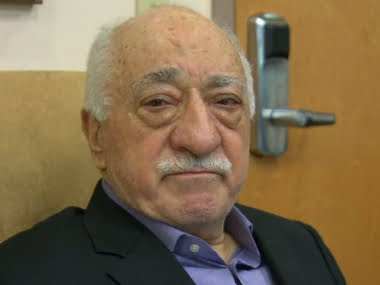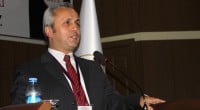Turkey coup and Fethullah Gülen: Why blame a progressive Islamic modernist?

Date posted: July 18, 2016
Ghulam Rasool Dehlvi
The coup in Turkey attempted by a group of middle-ranking soldiers of the country has gone down in West Asian history as an ill-designed expedition.
Leaving around 265 people dead and nearly 1,500 wounded — including members of the coup — 3,000 soldiers have been arrested. They mainly targeted Ankara and Istanbul, taking control of the Istanbul’s bridges, airports, the Turkish parliament and some police stations.
It is gratifying that the Turkish government has scuppered the coup attempt. But an irony that has left many in the lurch is the current Turkish establishment’s blame on the Turkish-origin moderate and progressive Islamic scholar and social thinker, Fethullah Gülen for being behind the coup. Turkish President Recep Tayyip Erdoğan has bluntly blamed it on the Hizmet movement, Gülen’s initiative for intercultural and interfaith dialogue and education in the country expanding across the world today. But for many immensely impressed by Gülen’s global humanitarian, social and Islam-based peace activism, it remains an obscure question as to how the former ally of his country is now blamed for the coup?
Not many in India know who Fethullah Gülen really is, despite his significant contributions in different parts of the country in promoting interfaith dialogue, modern education and peace activism.
An authoritative mainstream Turkish Islamic scholar, social thinker and educationist Fethullah Gülen (1938) has long been engaged in peace activism, interfaith and intercultural dialogue, promoting science, democracy and spirituality. Living in exile in Pennsylvania, he promulgates a spiritually inclined faith in Islam. He has propounded spiritual Islamic theories, which can contribute to the modern approaches to peace, non-violence and counter-extremism. Interestingly, he is not a social scientist but his ideas are very relevant to peace and conflict resolution. Gülen strongly advocates the importance of democracy, pluralism, education, science and interfaith dialogue for peace and conflict resolution in the Muslim world. In a research paper entitled Fethullah Gülen and His Liberal Turkish Islam (Movement. MERIA Journal. V4, No:4), Aras and Caha (2000) have concluded that Gülen’s basic idea is to replace the theory of “clash of civilisations” with the “cooperation of civilisations towards a peaceful world”.
It is not going to be all that easy to blame Gülen for the Turkish coup for two main reasons: First, Fathullah Gülen and his Hizmet movement fully supported the Turkish president Erdoğan when his ruling party, Justice and Development Party democratically rose to power. Second, the mainstream peace-loving Turkish people around the world endorse the writings and teachings of Fethullah Gülen, which lay the foundation of the Hizmet Movement. It has earned huge appreciation from an overwhelming number of independent researchers and writers, both from Turkey and foreign countries. Even the Turkish media has favoured the humanitarianism of the Gülen movement until the recent forced capture of the mainstream media outlets like the most popular daily newspapers Zaman and Today’s Zaman which often spoke for the Hizmet. Reporters Without Borders’ security-general Christophe Deloire released a hard-hitting statement about the takeover of independent media in Turkey, calling it “ideological and unlawful.” He wrote: “Erdoğan is now moving from authoritarianism to all-out despotism”. As a result, the editorial tone of several media outlets in connection to the Hizmet movement has changed after the takeover, as Al-Jazeera has pointed out in an article dated 6 March.
Gülen’s ideas, primarily drawn from Islamic sources, have inspired the powerful civic and social movement, Hizmet or what is popularly known as ‘Gülen movement’ within Turkey and abroad. The Turkish word ‘Hizmet’ is derivative of the Arabic-Persian word “Kihdmat” meaning “service” and hence the movement has established hundreds of educational, civic service organisations and institutions in over 160 countries, actively contributing in the areas of peacebuilding, conflict resolution, intercultural-interfaith dialogue, education, media and relief work. These institutions engage in various initiatives that foster inclusiveness, build community capacity and create shared spaces.
Remarkably, the prominent scholars of the country have produced numerous works on Fethullah Gülen and his peace activism in English, Turkish, Arabic and Urdu literature. However, most of the publications about Gülen were designed for the academia, not for the popular consumption of regular media audience. Nevertheless, they have developed a nuanced understanding of Gülen’s thoughts, particularly his theories of peace, nonviolence and counter-extremism. In this context, it would be quite pertinent to glance through a few rigorous research studies on Gülen and the Hizmet:
The renowned Turkish academician, Zeki Saritoprak, director of the Bediuzzaman Said Nursi Chair in Islamic Studies at John Carroll University in Cleveland, has tweeted, “I strongly condemn all dictatorships in Turkey be by military or political Islamists”. In 2007 at the SOAS conference, Saritoprak had explained that Gülen believes in the integrity of the individual; his approach to social restoration and peace building, therefore, is one of “bottom-up” social change which is similar to the famous Muslim sociologist Ibn Khaldun’s understanding of building peace.
In 2001, Berna Turam, professor of Sociology and Middle East Studies at Hampshire College, studied the Gülen Movement in McGill University for her PhD that was based on an extended empirical research project undertaken in Turkey and Kazakhstan between 1997 and 1999. She wrote Between Islam and the State: The Engagements between Gülen Community and the Secular Turkish State. The main findings of her research contrast the juxtaposition of Islam and the state. She noted:
“Throughout the Middle East, the clash between Islamic forces and authoritarian states has undermined many democratization efforts. But in Turkey, Islamic actors—from the Gülen movement to the pro-Islamist Justice and Development Party—have been able to negotiate the terms of secular liberal democracy”
“Though both the Gülen and JP have ambivalent attitudes toward individual freedoms and various aspects of civil society, their continuing engagements with the state have encouraged democracy in Turkey. As they contest issues of education and morality but cooperate in ethnic and gender politics, they redraw the boundaries between public sites and private lives.”
As mentioned above, the ruling party in Turkey Justice and Development Party (JP) was not antithetical to Gülen’s movement in its initial phase. But what catapulted it from being an ally of the Hizmet to get vehemently opposed to it. Turkish President accuses Gülen and Hizmet of running a “parallel state” with thousands of supporters in all structures of authority, all with the aim of overthrowing the government. However, the supporters of Gülen and Hizmet volunteers have retorted this accusation. They averred that Gülen is now Erdoğan’s “default scapegoat” and hence whatever wrong goes in the country is wrongly blamed on Gülen.
But to many analysists and West Asia experts, the tension is much deeper. They view it as a rivalry between the political Islamism and the moderate and mystical narrative of the faith. Fathullah Gülen has written many articles and books in support of democracy, liberalism and pluralism. Given this, it appears to be a slugfest between a relatively liberal and secular Islamic modernist in disagreement with Turkey’s conservative and political Islamist government!
Gülen’s progressive ideas have inspired a new-age Turkish generation dedicated to advocate democracy, dialogue, and humane values, stressing Islam’s universal and egalitarian messages through social agencies such as education, health, interfaith dialogue, relief programmes and other humanitarian channels. Going by a conservative estimate, the Hizmet movement runs more than thousands of secular educational institutions, hospitals, dialogue centres and unaccounted relief programmes.
At a time when the Muslim youth are falling prey to the extremist jihadist thoughts, Gülen’s initiatives are particularly aimed at producing solutions to the baffling problem of radicalisation and growing religious extremism in the Muslim societies.
The Alliance for Shared Values is one of the various global interfaith organizations that espouse the ideas of Gülen. It has condemned the coup attempt in the early hours, followed by the strongest condemnation of the incident by Gülen himself.
According to The Financial Times, many other Gülen-inspired organisations have denounced the coup in categorical and unequivocal terms.
The author is a scholar of Comparative Religion, Classical Arabic and Islamic sciences, cultural analyst and researcher in Centre for Culture, Media and Governance, JMI Central University
Source: First Post , July 18, 2016
Tags: Defamation of Hizmet | Fethullah Gulen | Military coups in Turkey | Turkey |
























